BRIAN J GRABER LLC is an environmental whistleblower protection lawyer representing employees in Illinois, Indiana, and Michigan who are retaliated against for engaging in protected activity under six federal environmental whistleblower protection statutes. These six federal environmental statutes protect human health and the environment from exposure to pollutants, chemicals, and toxic hazards. Employees who are retaliated against by their employers for engaging in protected activities under any of the six federal environmental whistleblower protection laws may have administrative claims against their employers. The six federal environmental statutes protecting employees from retaliation for whistleblowing activities are as follows:
- Federal Water Pollution Control Act (FWPCA), as amended by the Clean Water Act (CWA), 33 U.S.C. 1367;
- Clean Air Act (CAA), 42 U.S.C. 7622;
- Safe Drinking Water Act (SDWA), 42 U.S.C. 300j-9;
- Toxic Substances Control Act (TSCA), 15 U.S.C. 2622;
- Resource Conservation and Recovery Act (RCRA), a/k/a Solid Waste Disposal Act (SWDA), 42 U.S.C. 6971; and
- Comprehensive Environmental Response, Compensation, and Liability Act (CERCLA), 42 U.S.C. 9610.
Statute of Limitations
Each of the six federal environmental whistleblower protection statutes has an extremely short thirty-day statute of limitations as follows:
- The Clean Water Act (CWA), 33 U.S.C. 1367(b), requires any employee who believes he or she has been fired or otherwise discriminated against by a person in violation of the Act to file a complaint with the U.S. Department of Labor/OSHA within 30 days after the alleged violation occurs.
- Clean Air Act (CAA), 42 U.S.C. 7622(b)(1) requires any employee discharged or otherwise discriminated against by any person in violation of the Act to file a complaint with the U.S. Department of Labor/OSHA within thirty days after such violation occurs.
- Safe Drinking Water Act (SDWA), 42 U.S.C. 300j-9(i)(2)(A) requires any employee who believes he or she was discharged or otherwise discriminated against by any person in violation of the Act to file a complaint with the U.S. Department of Labor/OSHA within 30 days after such violation occurs.
- Toxic Substances Control Act (TSCA), 15 U.S.C. 2622(b)(1) requires any employee who believes he or she was discharged or otherwise discriminated against in violation of the Act to file a complaint with the U.S. Department of Labor/OSHA within 30 days after the violation occurred.
- Solid Waste Disposal Act (SWDA), 42 U.S.C. 6971(b) requires any employee who believes he or she has been fired or otherwise discriminated against in violation of the Act to file a complaint with the U.S. Department of Labor/OSHA within 30 days after such alleged violation occurs.
- The Comprehensive Environmental Response, Compensation, and Liability Act (CERCLA), 42 U.S.C. 9610(b), requires any employee who believes he or she was discharged or otherwise discriminated against in violation of the Act to file a complaint with the U.S. Department of Labor/OSHA within 30 days after the violation occurs.
If you believe you were discharged or otherwise discriminated against or retaliated against in violation of any of these federal environmental whistleblower protection statutes, contact BRIAN J GRABER LLC, an environmental whistleblower protection lawyer at (312) 291-4648 or (219) 232-9011 or (269) 230-6054 or by email for a free confidential consultation as soon as possible. The six federal environmental laws are very complex, requiring a detailed legal and factual analysis to determine whether the whistleblower protection provisions apply to your particular case. Therefore, you should seek legal consultation as soon as possible.
The failure to timely file an administrative complaint with the U.S. Department of Labor/OSHA may prevent you from recovering against your employer for violations of your rights under these six federal environmental whistleblower protection provisions. Click here to learn how to file an environmental whistleblower complaint against your employer with the U.S. Department of Labor/OSHA.
Clean Water Act
The Federal Water Pollution Control Act (FWPCA), as amended by the Clean Water Act (CWA), 33 U.S.C. 1251, et seq., establishes a structure for regulating the discharge of pollutants into the waters of the United States and regulates quality standards for surface water. The CWA makes it unlawful to discharge any pollutant from a point source (pipes or man-made ditches) into navigable waters unless a permit is obtained. The Clean Water Act regulates wastewater discharges and requires pretreatment of pollutants such as metals, oils, grease, and other substances that can interfere with the operation of local sanitary sewers and wastewater treatment plants, leading to the discharge of untreated or inadequately treated pollutants into local waterways. The CWA regulates stormwater pollution, which occurs when debris, chemicals, sediment, or other pollutants from industrial, construction, or urban areas get washed into water bodies. The CWA regulates animal waste from concentrated animal feeding operations discharged into water bodies. The CWA prohibits oil or hazardous substance spills in quantities that may be harmful to human health and the environment. Click here to learn more about the Clean Water Act.
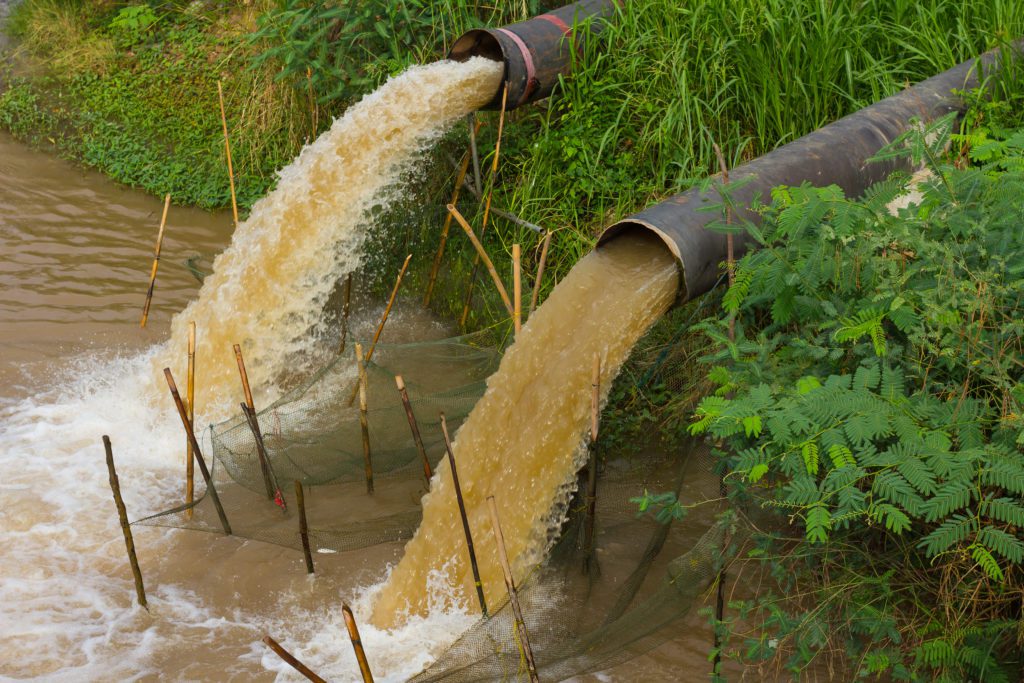
Clean Water Act Whistleblower Protections
The Clean Water Act’s Whistleblower Protection provision states as follows:
No person shall fire, or in any manner discriminate against, or cause to be fired or discriminated against, any employee or any authorized representative of employees by reason of the fact that such employee or representative has filed, instituted, or caused to be instituted any proceeding under this Act, 33 U.S.C. 1251, et seq., or has testified or is about to testify in any proceeding resulting from the administration or enforcement of the provisions of this Act, 33 U.S.C. 1251, et seq.
Clean Water Act, (CWA), 33 U.S.C. 1367(a)
Common criminal violations of the Clean Water Act, CWA, include the following:
- Discharging a pollutant from a point source into the water of the United States without an NPDES or 404 Permit or in violation of a permit. See 33 U.S.C. 1319(c)(1)&(2) and 40 C.F.R. 122.
- Discharging oil or a hazardous substance into the waters of the United States or upon adjoining shorelines or into the contiguous Zone in a harmful quantity. See 33 U.S.C. 1319(c)(1)&(2); 33 U.S.C. 1321(b)(3); and 40 C.F.R. 110, 116, & 117.
- Failure to notify and report to the appropriate federal agency after knowledge of a discharge of oil & hazardous substances in a harmful quantity. See 33 U.S.C. 1321(b)(5) and 40 C.F.R. 110, 116 & 116.
- Discharge to a POTW (publicly owned treatment works) in violation of pretreatment standards and prohibitions. See 33 U.S.C. 1319(c)(1)(A) & (2)(a); 33 U.S.C. 1317; 40 C.F.R. 403.5(a); 40 C.F.R. 403.5(b) (excessive heat, oil, toxic gases, trucked pollutants, etc); 40 C.F.R. 403.5(d) and 40 C.F.R. 4036-424.
- Discharging to a POTW (publicly owned treatment works) causing the plant to violate its own permit/limitation. See 33 U.S.C. 1319(c)(1)(B) & (C)(2)(B); and 40 C.F.R. 403.
- Knowing endangerment – knowingly committed certain specified offenses ( 33 U.S.C. 1311, 1312, 1313, 1316, 1317, 1318, 1321(b)(3), 1328, 1345, or permits issued under 1342 or 1344) and that such acts put another person in imminent danger or death or serious bodily injury. See 33 U.S.C. 1319(c)(3).
- Making a false statement, representation, or certification statement/representation/certification was material in any document filed or required to be maintained under the CWA. See 33 U.S.C. 1319(c)(4).
- Falsifying, tampering with, or rendering inaccurate monitoring device or method required to be maintained under the CWA. See 33 U.S.C. 1319(c)(4).
Click here to learn more about criminal violations of the Clean Water Act. Click here to learn more about the U.S. Environmental Protection Agency Water Enforcement Policy, Guidance, and Publications.
Clean Air Act
The Clean Air Act (CAA), 42 U.S.C. § 7401 et seq., is a federal law that regulates air emissions from stationary and mobile sources. The National Ambient Air Quality Standards (NAAQS) protect public health and welfare and regulate emissions of hazardous air pollutants. Click here to learn more about the Clean Air Act. Stationary sources include facilities like factories and chemical plants, which are required to install pollution control equipment and meet specific emission limits. The Clean Air Act limits emissions from coal-fired power plants, acid-glass plants, cement plants, and petroleum refineries. The Clean Air Act regulates the release of sulfur dioxide, sulfuric and nitric acid, nitrogen oxides, carbon monoxide, and other hazardous air pollutants. The Clean Air Act requires mobile sources, such as motor vehicle engines and off-road vehicles, to meet CAA emission standards. Click here to learn more about air pollution enforcement under the Clean Air Act.
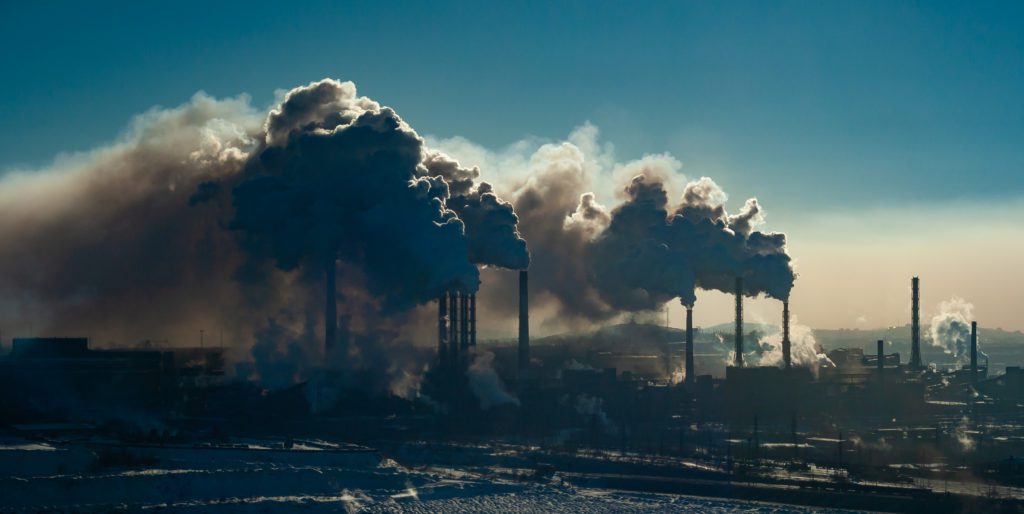
Clean Air Act Whistleblower Protections
The Clean Air Act’s Whistleblower Protection provision states as follows:
No employer may discharge any employee or otherwise discriminate against any employee with respect to his compensation, terms, conditions, or privileges of employment because the employee (or any person acting pursuant to a request of the employee) – (1) commenced, caused to be commenced, or is about to commence or cause to be commenced a proceeding under this Act or a proceeding for the administration or enforcement of any requirement imposed under this Act or under any applicable implementation plan, (2) testified or is about to testify in any such proceeding, or (3) assisted or participated or is about to assist or participate in any manner in such a proceeding or in any other action to carry out the purposes of this Act.
Clean Air Act, (CAA), 42 U.S.C. 7622(a)(1),(2) & (3).
Common criminal violations of the Clean Air Act (CAA) include the following:
- The owner or operator of a stationary source knowingly constructs a new source/modifies an existing source/emits a hazardous pollutant/or fails to comply with a design, equipment, work practice, or operation standard in violation of an applicable NESHAP. See 42 U.S.C. 7413(1) and 40 C.F.R. 61.
- Violation of Asbestos NESHAP during demolition/renovation – person who is an owner or operator of a demolition/renovation operation involving the disturbance of regulated asbestos material of at least 260 linear feet on pipes, 160 square feet on another facility components, or 35 cubic feet off facility components knowingly fails or causes another person or employee to fail to comply with any work practice standards in 40 C.F.R. 61.145, or waste disposal standards in 40 C.F.R. 61.150. See 42 U.S.C. 7413(1) and 40 C.F.R. 61140, 61.141, 61.150.
- Violation of Stratospheric Ozone Protection Provisions – a person knowingly violates any violation or prohibition of subchapter VI of the CAA including, but not limited to: non-essential products ban; production, importation, and disposal, and recycling program for motor vehicle air conditioners (MVACS); any requirement of the national emissions control, disposal, and recycling program for appliances or industrial process refrigeration equipment; venting Class I or Class II substances used as a refrigerant. See 42 U.S.C. 7413(1) and 40 C.F.R. 82.
- False Statements in CAA documents. A person knowingly makes false statements, representations, or certifications in/omits material information from/alters, conceals, or fails to file or maintain a document filed or required to be maintained under the CAA. See 42 U.S.C. 7413(1) and 40 C.F.R. 50-97.
- Tampering with the Monitor Device or Method. Falsifies, tampers with, renders inaccurate, or fails to install a monitoring device or method required by the Clean Air Act. See 42 U.S.C. 7413(1) and 40 C.F.R. 50-97.
- Failure to Notify or Report. A person knowingly fails to notify or report as required by the Clean Air Act. See 42 U.S.C. 7413(1) and 40 C.F.R. 50-97.
- Knowing/Negligent Endangerment. A person negligently/knowingly releases into the ambient air any hazardous air pollutant listed under Section 7412 of the Clean Air Act or any extremely hazardous substances listed pursuant to 42 U.S.C. 11002(a)(2) at the time of the release, negligently/knowingly puts another person in imminent danger of death or serious bodily harm. 42 U.S.C. 7413(c)(4)&(5), 42 U.S.C. 7412(b)(1), and 40 C.F.R. 61-63.
- Violation of State Implementation Plan (SIP). A person knowingly violates a requirement of an applicable SIP during a period of federally assumed enforcement, or more than 30 days after having been notified by the Administrator under Section 113(a), 42 U.S.C. 74139(a)91) that the defendant was in violation of such SIP requirement. See 42 U.S.C. 7413(c)91) and 40 C.F.R. 52.
- Violation of a New Source Performance Standard. The owner or operator of a “new” stationary source knowingly operates the new source in violation of an applicable category source performance standard. See 42 U.S.C. 7413(c)(1) and 40 C.F.R. 60.
- Violation of Operating Permit Provisions. The owner or operator of a source subject to the operating permits program knowingly operates the source without an operating permit or in violation of an operating permit requirement. See 42 U.S.C. 7413(c)91), 42 U.S.C. 7661(1)-92), 42 U.S.C. 7661a(a), and 40 C.F.R. 70-71.
- Violation of an Emergency Order. A person knowingly violates a prohibition or requirement of an emergency issued by the EPA pursuant to Section 303, 42 U.S.C. 7603. See 42 U.S.C. 7413(c)(1) and 40 C.F.R. 50-95.
Click here to learn more about the criminal provisions of the Clean Air Act. Click here to learn more about the U.S. Environmental Protection Agency’s air enforcement policy, guidance, and publications.
Safe Drinking Water Act
The Safe Drinking Water Act (SDWA), 42 U.S.C. 300f, et seq., protects the quality of drinking water in the United States. The SDWA focuses on all waters that are actually or potentially designated for drinking use. This includes drinking water sources above ground or underground. Under the SDWA, the U.S. Environmental Protection Agency establishes minimum standards to protect tap water. The SDWA requires all owners and operators of public water systems to comply with health-related standards. Click here to learn more about the SDWA.
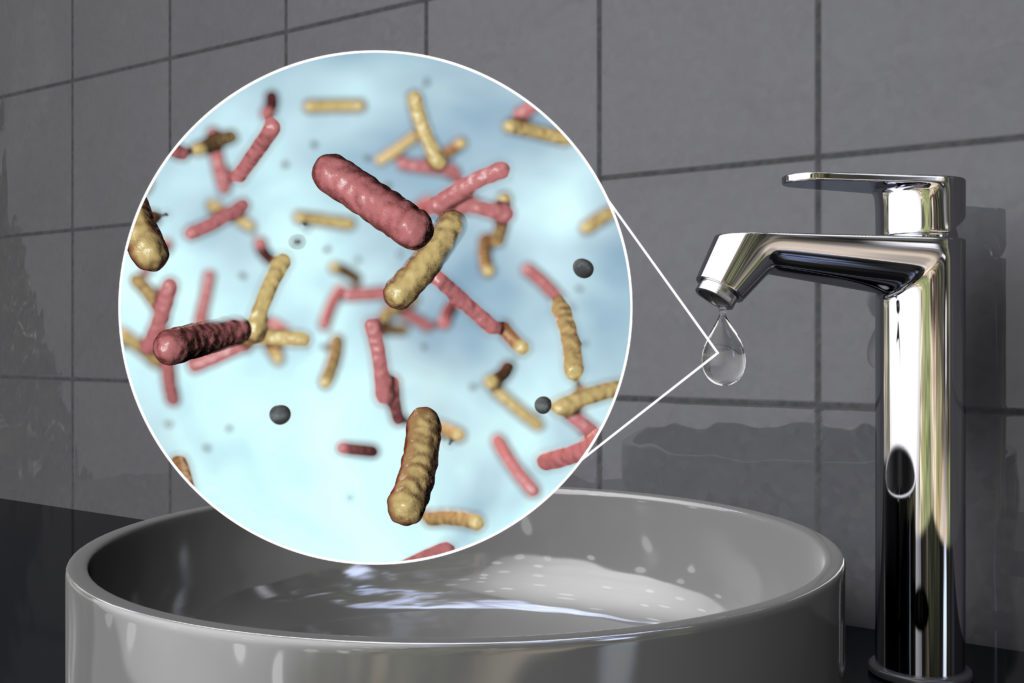
Safe Drinking Water Act Whistleblower Protections
The Safe Drinking Water Act’s Whistleblower Protection provisions state as follows:
No employer may discharge any employee or otherwise discriminate against any employee with respect to his compensation, terms, conditions, or privileges of employment because the employee (or any person acting pursuant to a request of the employee) has – (A) commenced, caused to be commenced, or is about to commence or cause to be commenced a proceeding under this Title, 42 U.S.C. 300f, et seq., or a proceeding for the administration or enforcement of drinking water regulations or underground injection control programs of a State, (B) testified or is about to testify in any such proceeding, or (C) assisted or participated or is about to assist or participate in any manner in such a proceeding or in any other action to carry out the prupose of this Title, 42 U.S.C. 300f, et seq.
Safe Drinking Water Act, (SDWA), 42 U.S.C. 300j-9(i)(1)(A), (B), & (C).
Common criminal violations of the Safe Drinking Water Act (SDWA) include the following:
- Tampering with Public Water Systems. See 42 U.S.C. 300i-1 and 40 C.F.R. 141-143.
- Violations of the Under Ground Injection Control (UIC) Program. See 42 U.S.C. 300h-2(b) and 40 C.F.R. 144-149.
Click here to learn more about criminal violations of the Safe Drinking Water Act. Click here to learn more about protecting underground sources of drinking water from underground injection (UIC). Click here to learn more about drinking water standards for States and public water systems. Click here to learn more about groundwater and drinking water protection.
Toxic Substances Control Act
The Toxic Substances Control Act (TSCA), 15 U.S.C. 2601, et seq., provides the U.S. Environmental Protection Agency with authority to require reporting, record-keeping, testing requirements, and restrictions related to chemical substances. The TSCA regulates PCBs, elemental mercury, asbestos mitigation, radon monitoring, lead abatement, and formaldehyde emissions. Click here to learn more about the Toxic Substances Control Act. Click here to learn more about the Toxic Substances Control Act’s compliance and monitoring. The Toxic Substances Control Act regulates the following:
- Polychlorinated biphenyls (PCBs);
- Asbestos;
- Lead;
- Formaldehyde;
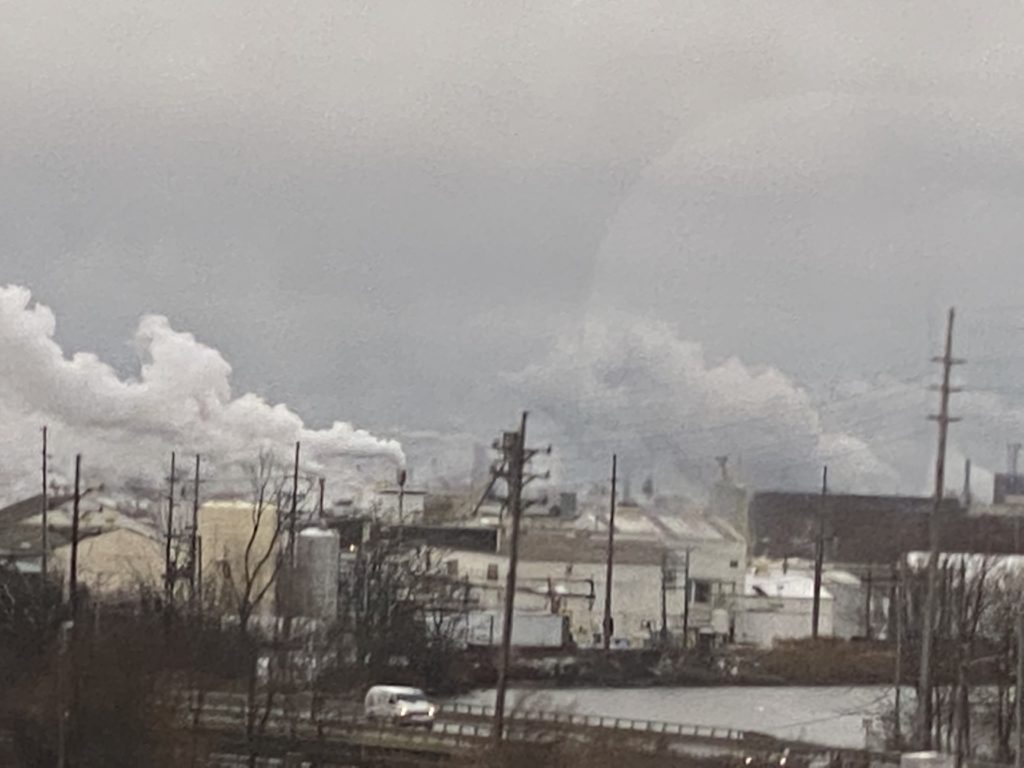
Toxic Substances Control Act Whistleblower Protections
The Toxic Substances Control Act Whistleblower Protection provisions state as follows:
No employer may discharge any employee or otherwise discriminate against any employee with respect to the employee’s compensation, terms, conditions, or privileges or employment because the employee (or any person acting pursuant to a request of the employee) has – (1) commenced, caused to be commenced, or is about to commence or cause to be commenced a proceeding under the Act, 15 U.S.C. 2601, et seq.; (2) testified or is about to testify in any such proceeding; or (3) assisted or participated or is about to assist or participate in any manner in such a proceeding or in any other action to carry our the purposes of this Act, 15 U.S.C. 2601, et seq.
Toxic Substances Control Act, (TSCA), 15 U.S.C. 2622(a)(1), (2) and (3).
Common criminal violations of the Toxic Substances Control Act (TSCA) include the following:
- Knowingly violating the Toxic Substances Control Act (TSCA), 15 U.S.C. 2614 or 15 U.S.C. 2689. See 15 U.S.C. 2615(b)(2)(A);
- Failing or refusing to comply with a regulation order, or inspection under 15 U.S.C. 2603-2606, 2610 (Control of Toxic Substances); 15 U.S.C. (Lead Exposure Reduction) regarding a substance regulated under TSCA or AHERA. See 15 U.S.C. 2615(b) and 40 C.F.R. 700-766.
- Failing or refusing to comply with a PCB regulation, the PCB substance contained 50 ppm or greater PCBs. See 15 U.S.C. 2615(b) and 40 C.F.R. 761.
- Failing or refusing to submit the notice requirement the chemical substance was a new chemical, or the chemical substance was manufactured or processed for a use designated by regulation as a new use. See 15 U.S.C. 2615(b) and 40 C.F.R. 720-725.
- A person subject to the record-keeping, reporting, or access-for-copying requirement under the TSCA (15 U.S.C. 2601-2692) fails or refuses to comply with that requirement. See 15 U.S.C. 2615(b).
- Denying an EPA representative access to the premises. See 15 U.S.C. 2615(b).
Click here to learn more about the criminal violation of the Toxic Substances Control Act.
Solid Waste Disposal Act
The Resource Conservation and Recovery Act (RCRA), 42 U.S.C. 6901, et seq., which amends the Solid Waste Disposal Act of 1965, gives the U.S. Environmental Protection Agency authority to control hazardous waste from generation, transportation, treatment, storage, and disposal. The Act sets standards for municipal and industrial waste landfills, underground storage tanks, and the reduction of waste generation. Click here to learn more about the Resource Conservation and Recovery Act. Click here to learn about the history of this statute. Click here to learn more about compliance and monitoring under the RCRA/SWDA.
Solid Waste Disposal Act Whistleblower Protections
The Solid Waste Disposal Act Whistleblower Protections states as follows:
No person shall fire, or in any other way discriminate against, or cause to be fired or discriminated against, any employee or any authorized representative of employees by reason of the fact that such employee or representative has filed, instituted, or caused to be filed or instituted any proceeding under this Act, 42 U.S.C. 6901, et seq., or under any applicable implementation plan, or has testified or is about to testify in any proceeding resulting from the administations or enforcement of the provisions of thie Act, 42 U.S.C. 6901, et seq., or any applicable implementation plan.
Solid Waste Disposal Act, (SWDA), 42 U.S.C. 6971(a).
Common criminal violations of the Resource Conservation and Recovery Act (RCRA)/Solid Waste Disposal Act (SWDA) include the following:
- Treatment, storage, or disposal of hazardous waste without a permit. See 42 U.S.C. 6928(d)(2)(A) and 40 C.F.R. 260-265;
- Treatment, storage, or disposal of hazardous waste in violation of a permit. See 42 U.S.C. 6928(d)(2)(B) and (C) and 40 C.F.R. 260-265.
- Transportation of hazardous waste without a manifest, where one is required by regulations. See 42 U.S.C. 6928(d)(5).
- Transportation of hazardous waste to an unpermitted facility. See 42 U.S.C. 6928(d)(1) and 40 C.F.R. 260-265.
- RCRA false statements. Omitting material information or making any false statement in any document filed or used for purposes of compliance with Subtitle C (RCRA hazardous waste regulations) document. See 42 U.S.C. 6928(d)(3).
- Alternation, Destruction, or Concealment of Records. Any person generating, storing, treating, transporting, disposing of, exporting, or otherwise handling hazardous waste and altering, destroying, concealing, or failing to file records required to be maintained or filed pursuant to Subtitle C. See 42 U.S.C. 6928(d)(4) and 40 C.F.R. 260-265.
- A person transports, treats, stores, disposes of, or exports a hazardous waste in violation of 42 U.S.C. 6928(d)(1)-(7) and knows such acts put another person in imminent danger of death or serious bodily injury. See 42 U.S.C. 6928(e) and 40 C.F.R. 260-265.
- Exports a hazardous waste without the consent of the receiving country or in violation of an international agreement between the United States and the receiving country. See 42 U.S.C. 6928(d)(6) and 40 C.F.R. 260-265.
Click here to learn more about criminal violations of the RCRA/SWDA. Click here to learn more about the basics of hazardous wastes.
Comprehensive Environmental Response, Compensation, and Liability Act
The Comprehensive Environmental Response, Compensation and Liability Act (CERCLA), 42 U.S.C. 9601, et seq., creates a federal “superfund” to clean up uncontrolled or abandoned hazardous waste sites, accidents, spills, and other releases of pollutants and contaminants into the environment. Click here to learn more about the CERCLA. Click here to learn more about Superfund enforcement.
CERCLA’s Whistleblower Protections
The Comprehensive Environmental Response, Compensation and Liability Act (CERCLA), whistleblower protections state as follows:
No person shall fire or in any other way discriminate against, or cause to be fired or discriminated against, any employee or any authorized representative of employees by reason of the fact that such employee or representative has provided infromation to a State or to the Federal Government, filed, instituted, or caused to be filed or instituted any proceeding under this Act, or has testified or is about to testify in any proceeding resulting from the administration or enforcement of the provisions of this Act.
Comprehensive Environmental Response, Compensation and Liability Act, (CERCLA), 42 U.S.C. 9610(a).
Common criminal violations of the Comprehensive Environmental Response, Compensation and Liability Act (CERCLA) include:
- Failure to Notify of a Release. A person in charge of a facility or vessel fails to notify the appropriate agency of the U.S. Government immediately, as soon as he/she becomes aware of the release into the environment of a hazardous substance in an amount equal to or greater than a reportable quantity without a federal permit. See 42 U.S.C. 9603(b) and 40 C.F.R. 116, 129, 261, 61, and 761 (list of covered chemicals under other statutes).
Click here to learn more about criminal liability under CERCLA. Click here to learn more about waste, chemical, and cleanup enforcement.
Environmental Whistleblower Burden of Proof
An employee claiming he or she was retaliated against for engaging in protected activity under any of the six federal environmental whistleblower protection provisions must establish a prima facie case under 29 C.F.R. 24.104(e)(2) as follows:
- The employee engaged in protected activity;
- The employer knew or suspected that the employee engaged in protected activity;
- The employee suffered adverse employment action; and
- The circumstances are sufficient to raise the inference that the protected activity was a motivating factor in the adverse employment action.
A “motivating factor” is a substantial factor. See Dekalb Cnty. v. U.S. Dep’t Labor, 812 F.3d 1015, 1021 (11th Cir. 2016). The legal analysis of an environmental whistleblower claim under the six federal whistleblower protection provisions is complex, and the statutes of limitation are extremely short. If you believe you may have a claim against your employer for violation of your rights under any of the six federal whistleblower protection provisions, contact BRIAN J GRABER LLC, an environmental whistleblower lawyer, at (312) 291-4648, (219) 232-9011, or (269) 230-6054 or by email to schedule a free confidential consultation.

Environmental Whistleblower Protected Activity
Under 29 C.F.R. 24.102(c)(1)-(3) and by interpretation of the Secretary of Labor under any of the above-listed six federal environmental whistleblower protection statutes, it is a violation for an employer to intimidate, threaten, restrain, coerce, blacklist, discharge, or in any manner retaliate against any employee because the employee has:
- Notified the employer of an alleged violation of such statute;
- Refused to engage in any practice made unlawful by such statute if the employee has identified the alleged illegality to the employer; or
- Testified or is about to testify before Congress or at any Federal or State proceeding regarding any provision (or proposed provision) of such statute
- Complaining to the EPA or a State or local government agency regarding potential environmental violations.
Whistleblower protection for an employee’s activities that otherwise “touch on” the environmental acts is contingent on proof that the employee actually believed that the employer’s activities implicated environmental or public health and safety concerns addressed by the environmental acts, under which protection is sought, or the employee’s actions otherwise furthered the purposes of those acts. See Williams v. Dallas Independent School Dist., ARB No. 12-024, ALJ No. 2008-TSC-001, slip op. at 10 (ARB Dec.28, 2012). The Administrative Review Board (ARB) consistently holds that “employees who report safety concerns they reasonably believe are violations of federal whistleblower statutes are engaging in protected activity, regardless of their job duties. See Joyner v. Georgia-Pacific Gypsum, LLC, ARB No. 12-028, ALJ No. 2010-SWD-001, slip op. at 12 (ARB Apr. 25, 2014).
An employee’s complaint to either an employer or a government agency must be specific enough about the conduct that the employer reasonably believed violated federal environmental statutes so as to put the employer or government agency on notice to investigate the complaint. Internal complaints made to an employer under 29 C.F.R. 24.102(c)(1) should be made to a management employee with the authority to correct the believed violation of the environmental statutes.
Click here to learn about how to report environmental violations to the U.S. Environmental Protection Agency. Click here to learn how to report an environmental violation of the Illinois EPA. Click here to learn how to report to the Indiana Department of Environmental Management. Click here to learn how to report an environmental violation to the State of Michigan.
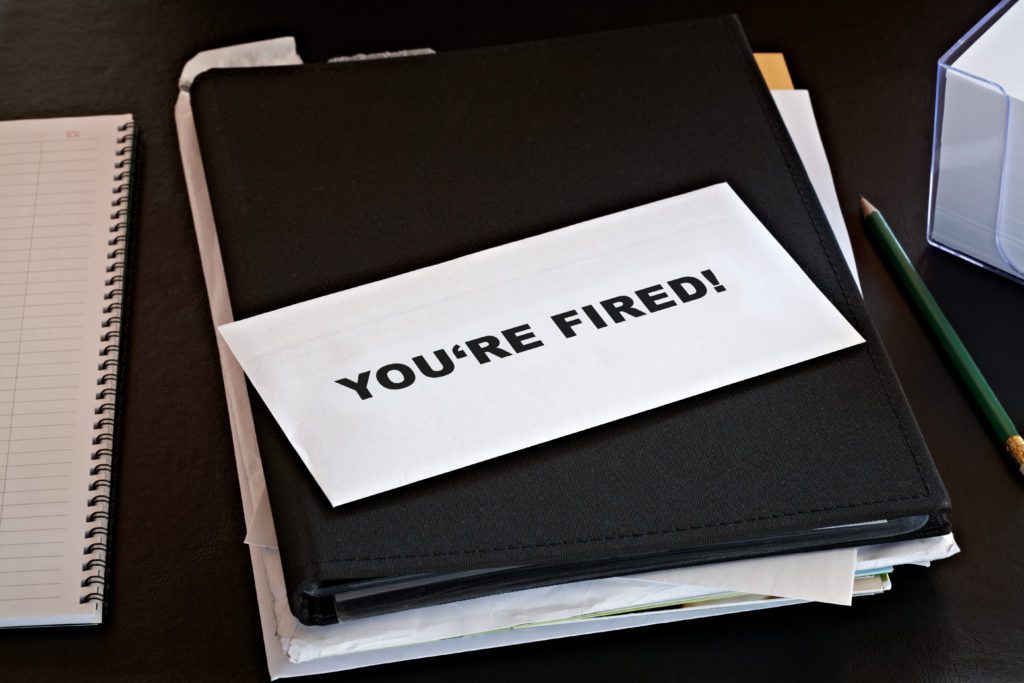
Common Protected Activities
The U.S. Department of Labor/OSHA identified the following non-exclusive list of certain types of activities that have been found to be protected activities under the six federal environmental whistleblower statutes:
- Complaining to a supervisor or other employer personnel or agents of the employer, such as a safety inspector employed by the employer, who can address potential environmental violations;
- Complaining to the EPA or a state or local government agency regarding potential environmental violations, misuse of grant funds, or other issues related to an environmental statute;
- Providing information or assisting in an environmental inspection or proceeding related to one or more of the environmental statutes;
- Testifying in a proceeding or providing information to Congress regarding potential violations of an environmental statute;
- Being about to participate, assist, or testify in an investigation or proceeding related to one or more environmental statutes;
- Refusing to violate an environmental statute; and
- Refusing to work when confronted with a condition that the employee reasonably believes is an environmental hazard if the employer refuses to abate the hazard or to adequately explain that the condition does not present a hazard after having been made aware of it.

If you believe that your employer retaliated against you in violation of your rights under the six federal environmental whistleblower protection statutes, contact BRIAN J GRABER LLC, an environmental whistleblower lawyer, at (312) 291-4648 or (219) 232-9011 or (269) 230-6054 by email for a free confidential consultation as soon as possible.
Key Takeaways
- BRIAN J GRABER LLC is an environmental whistleblower protection lawyer assisting employees in Illinois, Indiana, and Michigan.
- Six federal environmental statutes protect whistleblowers from employer retaliation for reporting violations.
- Each statute has a short thirty-day statute of limitations for filing complaints with the U.S. Department of Labor/OSHA.
- Common protected activities include reporting environmental violations and refusing unsafe work conditions.
- Consult an environmental whistleblower lawyer for complex legal analysis and timely action against retaliation.
Estimated reading time: 20 minutes
Table of contents
- Statute of Limitations
- Clean Water Act
- Clean Water Act Whistleblower Protections
- Clean Air Act
- Clean Air Act Whistleblower Protections
- Safe Drinking Water Act
- Safe Drinking Water Act Whistleblower Protections
- Toxic Substances Control Act
- Toxic Substances Control Act Whistleblower Protections
- Solid Waste Disposal Act
- Solid Waste Disposal Act Whistleblower Protections
- Comprehensive Environmental Response, Compensation, and Liability Act
- CERCLA’s Whistleblower Protections
- Environmental Whistleblower Burden of Proof
- Environmental Whistleblower Protected Activity
- Common Protected Activities
